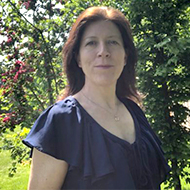The global economic cost of coccidiosis stands at around £1.8 billion.
Researchers a step closer to an affordable coccidiosis vaccine
Biological researchers from the Royal Veterinary College are closer to finding a new cost-effective vaccine for the intestinal disease, Coccidiosis, which can have devastating effects on poultry production.
The global production of poultry has tripled in the past 20 years. One of the world most popular animals to consume, the world's chicken flock is now estimated to be around 21 billion, producing 1.1 trillion eggs, and 90 million tonnes of meat every year.
Coccidiosis is caused by protozoan parasites of the genus Eimeria. The infection affects the intestines of chickens, and if not controlled has extremely high morbidity and mortality rates.
In a decade-long collaborative research project, researchers at the RVC haves helped to produce full genome sequences of all seven species of Eimeria. This is crucial breakthrough for the poultry industry in its fight against coccidiosis, which puts the global economic cost of infection at around £1.8 billion.
The RVCs head of pathology and pathogen biology, Professor Fiona Tomley, and senior lecturer in parasitology, Dr Damer Blake are co-authors of the research which is being published in the academic journal, Genome Research.
Professor Tomley said: "Understanding the genetic code of Eimeria parasites will help in the race to develop new therapies for coccidiosis. With poultry production expansion predicted to continue for at least the next 30 years, and with Africa and Asia accounting for most of this growth, developing a new generation of cheap effective vaccines against coccidiosis will be a major contribution to global food security."
The research is published in the academic journal Genome Research and is funded by the Biotechnology and Biological Sciences Research Council.







 RCVS Knowledge has welcomed Professor Peter Cockcroft as editor-in-chief for Veterinary Evidence.
RCVS Knowledge has welcomed Professor Peter Cockcroft as editor-in-chief for Veterinary Evidence. 
